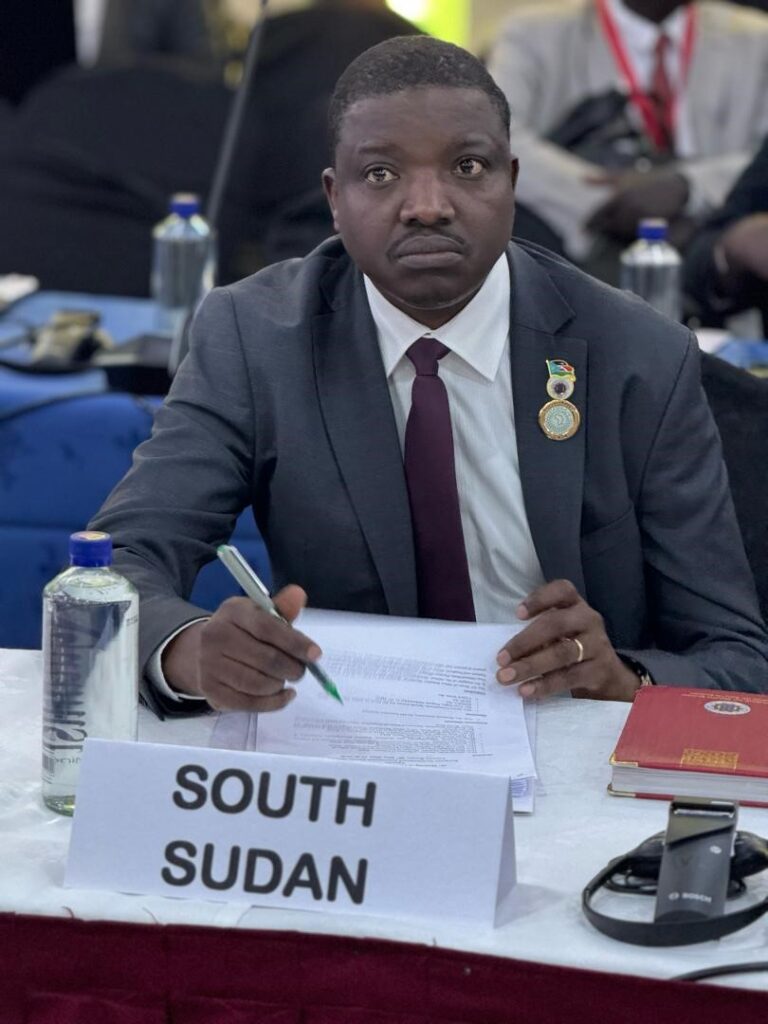South Sudan's English Daily Newspaper
"We Dare where others fear"

By Okech Francis
At an ongoing high-level dialogue organized by the African Development Bank in Nairobi, the capital of Kenya, South Sudan is advocating for assistance to overcome economic challenges posed by internal problems and aggravated by crisis in neighboring Sudan.
The African Development Bank organized the event entitled “Policy Dialogue on Innovative Financing for Tertiary Education in Africa: Revitalizing the Role of the Private Sector,” in collaboration with the Kenyan government, the African Union Commission, and the Deutsche Gesellschaft für Internationale Zusammenarbeit (GIZ) GmbH.
The event, the African Development Bank’s hybrid 2024 Annual Meetings aims to explore strategies and best practices to stimulate private-sector financing for tertiary education, and countries like South Sudan have though had a chance to explain its challenges and showcase potentials.
At the event, Dr James Alic Garang, the Governor of the Bank of South Sudan urged the international community to respond to the request of assistance by the country concerning its economic challenges.
“There are a number of challenges facing South Sudan both from outside and within. Some of those, especially the conflict in Sudan goes beyond Sudan to South Sudan and other countries,” Garang said.
“What affects one country affects the other because of the connection that we have,” he said.
“We are advocating for more resources from the international community to South Sudan. We would like to see more because the needs are huge.”
His call was backed by Ilyas Moussa Dawaleh, Djibouti’s Minister of Economy and Finance, in charge of Industry.
“Because of the crisis happening in Sudan, there is a big need to really help South Sudan to look at other opportunities and other outlets,” Dawaleh said in a presentation at the event in Nairobi.
“We know Ethiopia is planning to put its own resources to help South Sudan,” he said.
“They need to be connected to Ethiopia by road as quick as possible. We know the project of the road is designed.”
In a piece published during the ongoing event on several media outlets in the region and on The Dawn too, Garang noted that the world does not really know that South Sudan boasts a wealth of natural resources beyond oil.
“Fertile land, vast water reserves from the Nile, and abundant mineral deposits offer a diversified base for investment,” he said.
“The agricultural sector holds immense promise,” Garang said adding that “with fertile plains and a long growing season, South Sudan has, indeed, the potential to still become a breadbasket for the region and beyond.”
He said investment in modern farming techniques, irrigation infrastructure, and storage facilities can unlock this potential, ensuring food security while creating jobs for million people but noted that South Sudan cannot achieve its growth potential in isolation.
“If anything, South Sudan needs to integrate both with the global economy while strengthening collective action, especially the region and international financial system,” Garang said.




